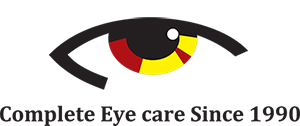Complete Eye Check Up
The majority of us believe that routine eye exams are unnecessary as long as we can see clearly. We occasionally think that a simple online test or a trip to the Optician for a pair of glasses will suffice to ensure our eye health.
The truth is completely different. The majority of disorders that endanger eyesight do not exhibit symptoms in the early stages and cannot be detected solely by a refractive error test (glasses’ power) alone.
Eye exams are carried out by qualified eye doctors, who also assess the overall health of your eyes in addition to your visual acuity and the power of your glasses. It comprises checking your eye pressures, as well as the evaluation of the front (anterior segment) and back of the eye ( Retina).
Additionally, at Singh Eye Care, we are able to spot early indications of serious conditions including diabetes, hypertension, potential brain tumours, and risk of stroke based on the appearance of blood vessels, the retina, and the optic nerve.
What happens during the eye exam?
- Visual Acuity: We’ll assess both your near and distance vision. If judged to be lacking, you will be given a prescription for spectacles or contact lenses.
- Eye Pressure: Either a contact device or a non-contact tonometer will be used to measure your eye pressure. In the former, topical anaesthetic drops will be applied.
- Slit Lamp Evaluation: Your eyes will be examined on a unique device known as the “slit lamp,” a microscope with an integrated illumination. This gives your doctor a magnified view of all the eye’s structures. Your doctor will utilise a system of lenses to make the light focus posteriorly in order to see your optic nerve and retina.
- Dilated Evaluation: Every time you visit a doctor, a dilated evaluation might not be necessary. It requires using eye drops to dilate your pupils, which takes about an hour, so that your doctor may examine your retina and optic nerve more closely. If you undergo a dilated evaluation, you won’t be able to drive home from the doctor’s office since your vision will be cloudy for three to eight hours (depending on the dilating drops used). You will also experience a greater intolerance to light. You probably need a dilated eye examination if you have diabetes, high refractive error, or eye conditions such as retinal degeneration, ARMD or glaucoma.
- Special Tests: In addition to the usual eye exam, if your eye doctor suspects any disease process, he will schedule certain tests that will aid in the diagnosis and management of that disease.
